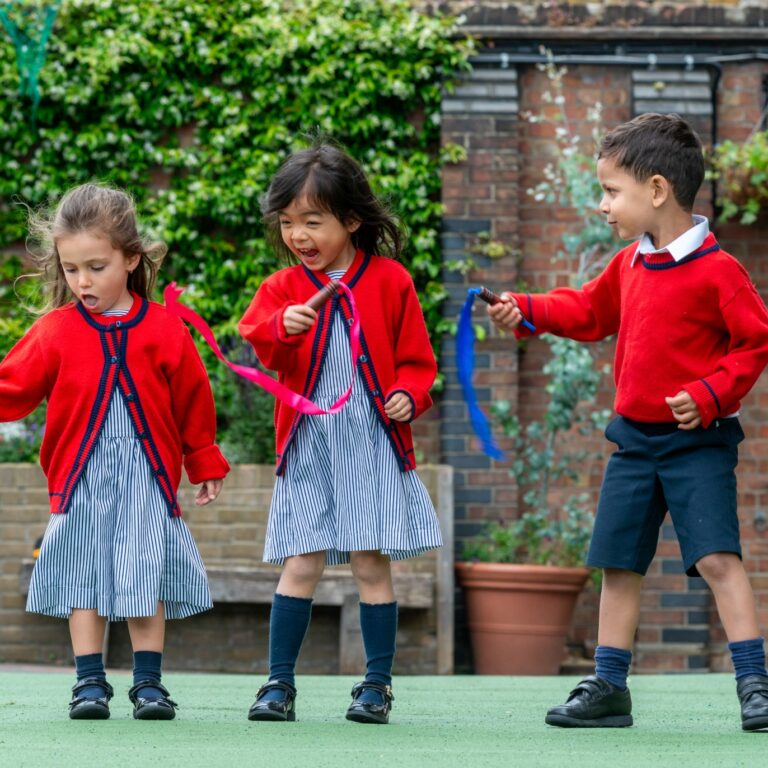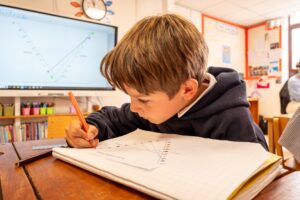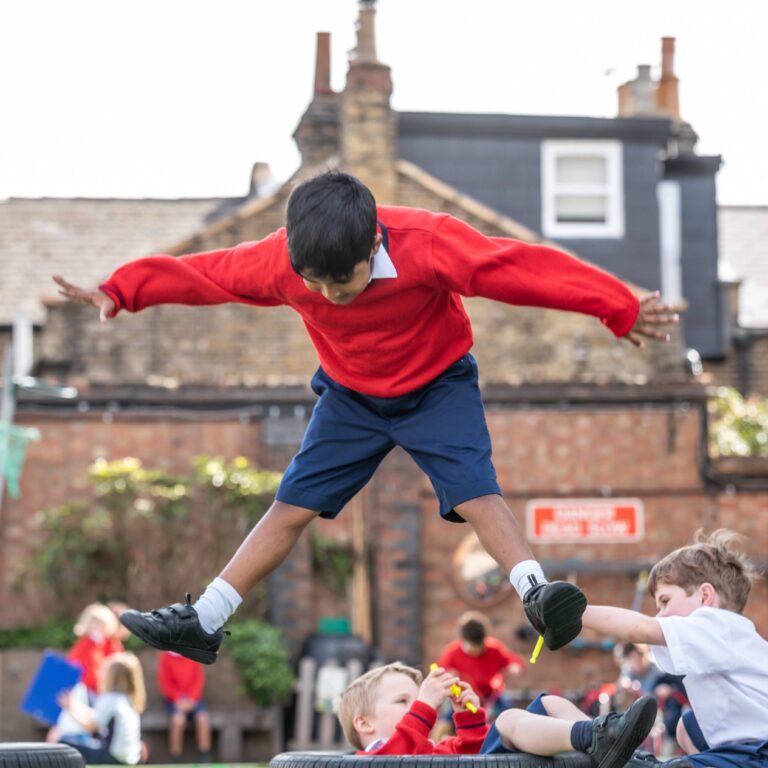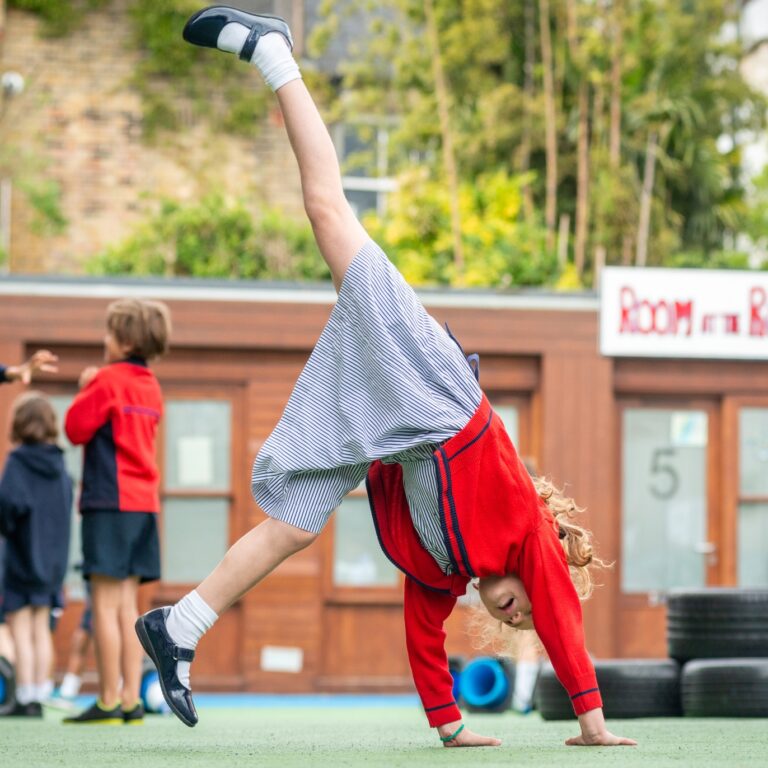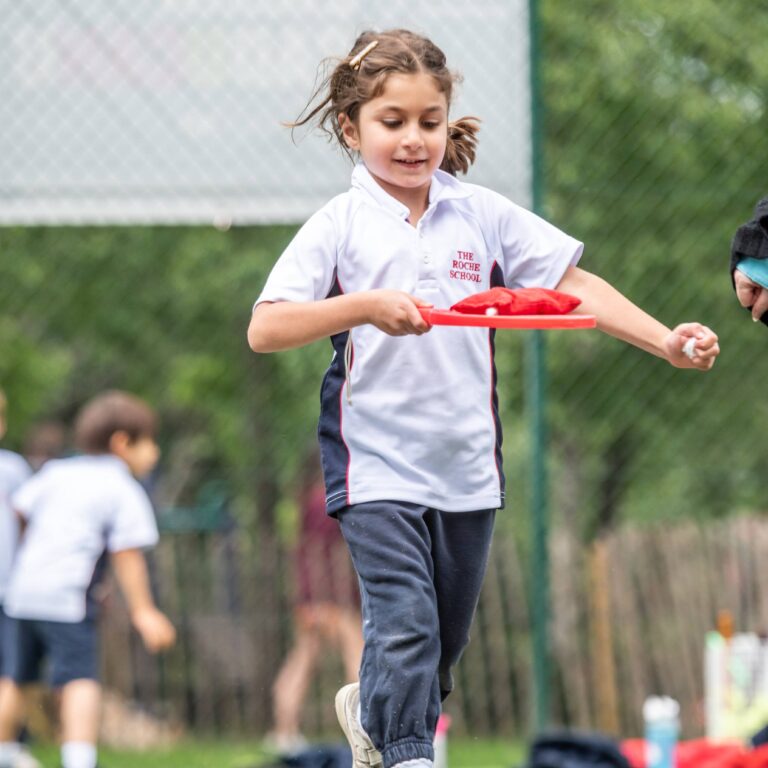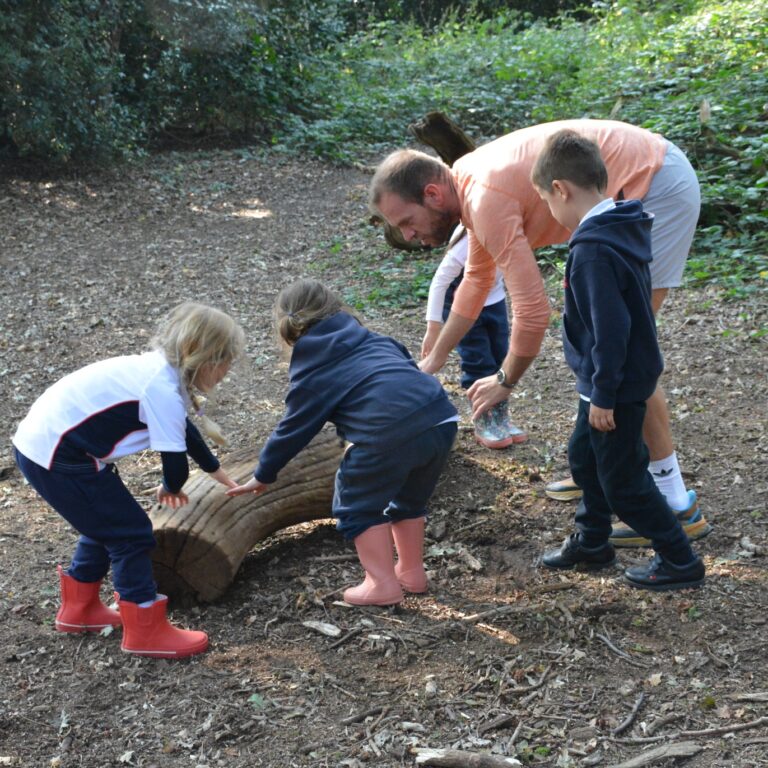Academics

English
High quality literature is the basis for everything we do in English, ranging from award-winning picture books and contemporary poetry for younger children to classic novels and complex short stories for older children. We ensure that every text we study models rich and evocative language, captures a diverse range of voices and experiences, presents engaging opportunities for drama and writing, and sparks the imagination of our pupils.
Ambitious literature choices include studying Maya Angelou in Year 4, Jamila Gavin in Year 5 and Edgar Allan Poe, Tennyson and Agatha Christie in Year 6. But an absolute highlight of the English calendar is when the whole school, from Nursery to Year 6, celebrates Shakespeare Week, demonstrating that quality teaching by passionate and knowledgeable educators can bring classic texts to life for even the youngest children.
“The literature we do in English is amazing and it makes me want to read more.”
“I like English at The Roche School because we do lots of drama to find out what the story is like from the character’s point of view.”
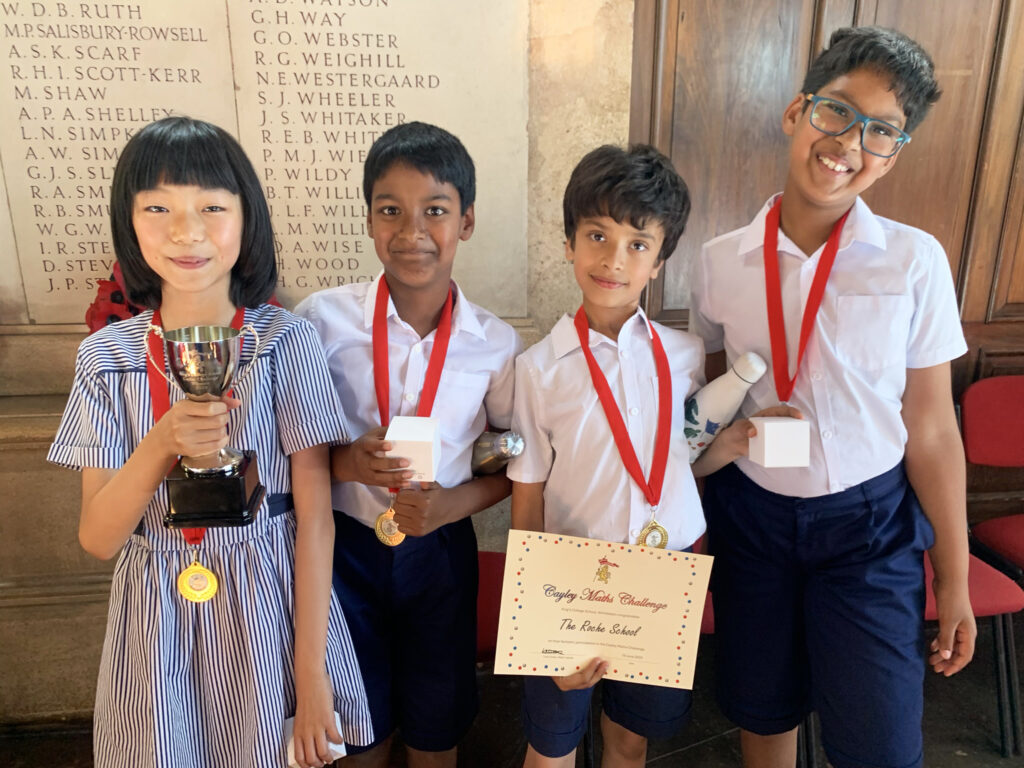
Maths
We believe that every child is capable of becoming a competent mathematician and we seek to challenge every child according to their ability and mathematical potential. Pupils consider how and why calculations work. Our teaching develops an understanding of questions like:
1) If a cake is £6, what is 2/5 worth?
2) How can we measure the playground’s width without crossing it?
3) If biscuits cost £3.45, what change do you get from £5?
Children develop a strong understanding of number and computational skills in a practical setting in early years, developing a clear understanding of formal written methods when they are ready and applying their skills to word-based problems. As children move up the school, there is an emphasis on applying pure number in more practical settings through hands-on investigations and being able to explore more abstract concepts such as ratio and algebra. Alongside traditional teaching methods, puzzles, games and Maths mysteries get the children crowding around the table, keen to participate in lively and playful learning opportunities.
This varied approach, combined with regular re-visiting of all topic areas to build a solid foundational understanding, enables children to progress while engendering an enthusiasm for the idea that Maths is fun and also relevant to their daily lives. Participation in external competitions and challenges, such as the King’s Cayley Maths Challenge and UK Maths Trust Junior Maths Challenge, further challenges our young mathematicians.
“My Maths teachers help me and now I can do a lot more by myself.”
“We get to play Maths games every Friday, which is the highlight of my week!”
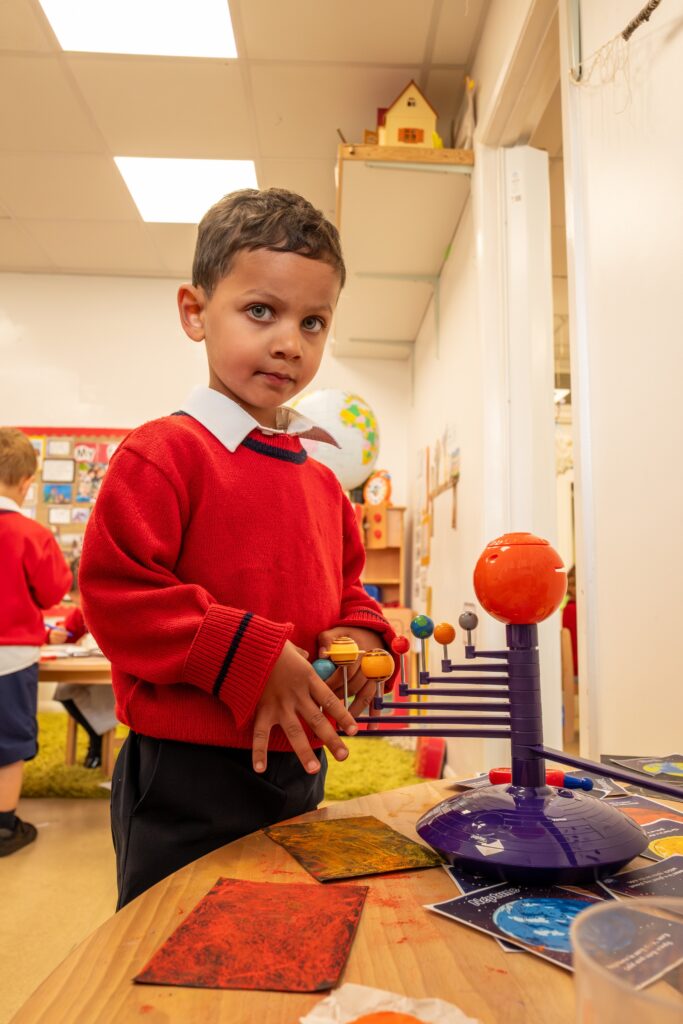
Science
Science is all about exploring the world around us through curiosity and hands-on learning. Children investigate topics like plants, animals, materials, weather, forces, and space, developing their understanding through experiments, observations, and discussions. The goal is to nurture a sense of wonder and to build foundational scientific skills such as asking questions, making predictions, and drawing conclusions. Science lessons encourage children to think critically, work collaboratively, and begin to see how Science connects to everyday life.
Science excursions include pond-dipping at the Wetlands Centre in Barnes and a visit to a beehive in Fulham. Our annual Science Week sparks enthusiasm right across the school, and extra-curricular activities such as Astrophysics club, Science club and Gardening club allow children with an enthusiasm for Science to explore their interests beyond the classroom.
“It’s like being a detective — we ask questions and find out answers!”
“I like when we do experiments because they are fun!”
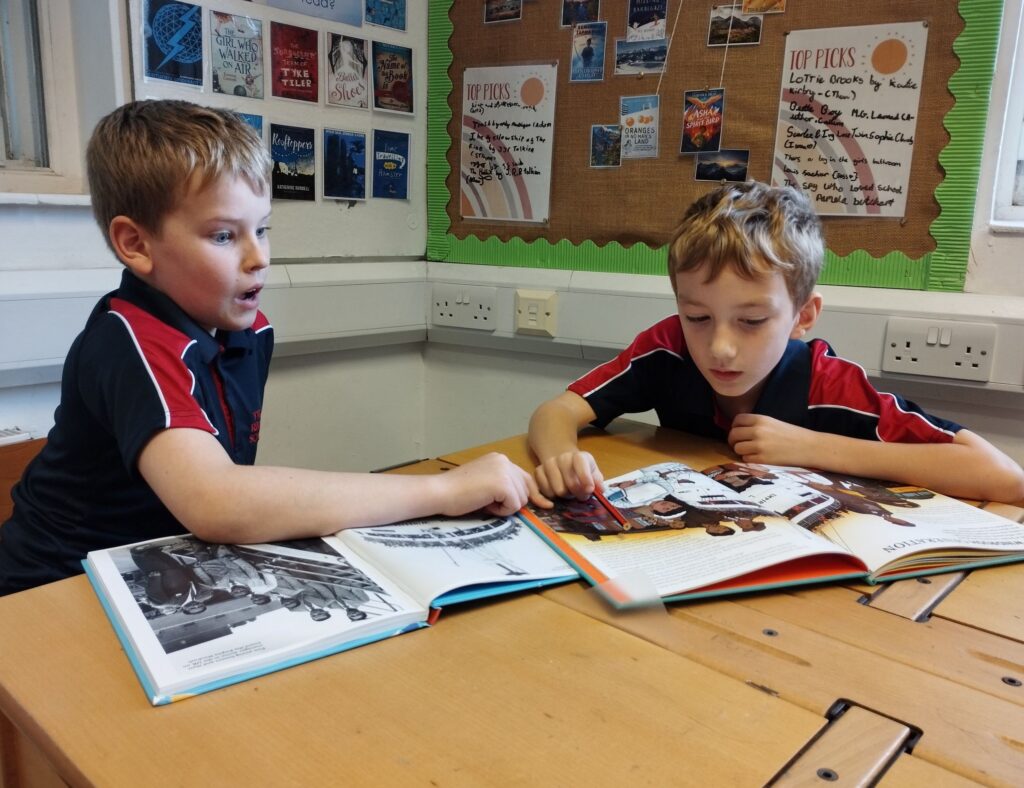
Humanities
Humanities lessons encourage children to ask questions, think critically, and remain open-minded about the world around them. Through engaging lessons in History, Geography and Religion, genuine curiosity is fostered and a deeper understanding of diverse people, places, and perspectives is developed. This reflects the school’s ethos of nurturing inquisitive, thoughtful learners who are eager to explore and connect with the world.
Special excursions, workshops and guest speakers bring these subjects to life and as a central London school, we are truly spoilt for choice. A few highlights include trips to explore ancient Roman ruins, an atmospheric tour of the birthplace of Anne Boleyn and a contemplative visit to a Buddhist temple.
“Learning about other countries and cultures was really interesting. It links to open mindedness and makes me want to visit more countries!”
“Some of the history topics actually reminded us how lucky we are. In the past people had to go through some difficult times.”
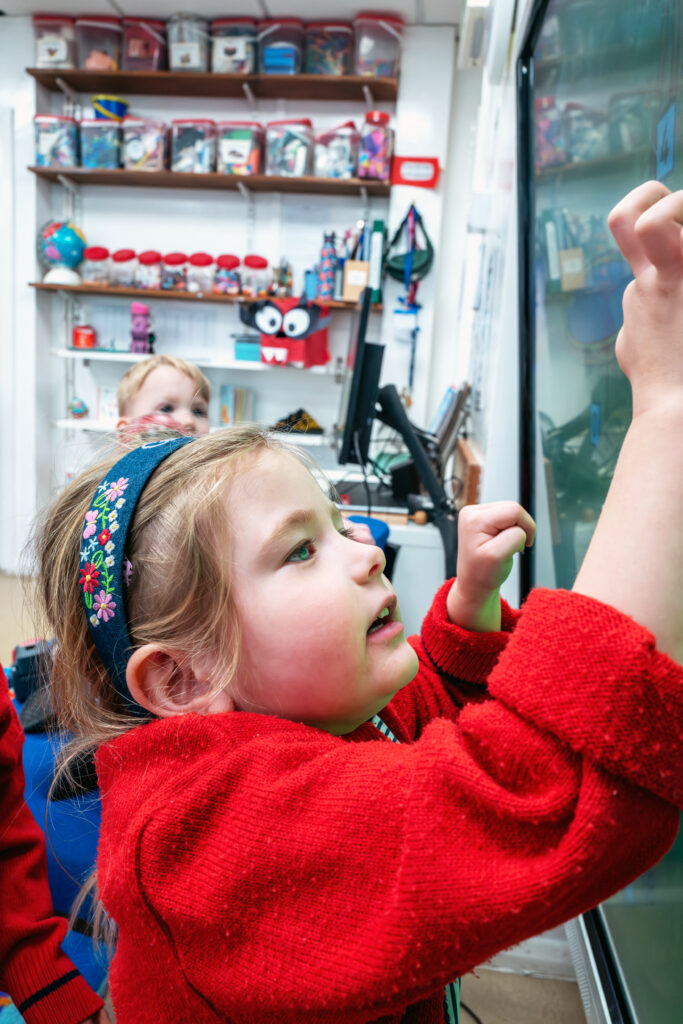
Computing
Our approach to teaching computing is designed to equip children with the skills they need for a successful digital future. Our weekly computing lessons are a dynamic mix of online and hands-on activities that cover three key areas: Computer Science, Information Technology and E-Safety.
Computer Science is where we explore the “how” and “why” behind technology. Children learn the foundational principles of how computers work, including coding with Python and problem-solving. Information Technology is the practical application of our knowledge. We use a wide variety of software and tools to create and process information, helping children master the skills needed to use technology effectively. With E-Safety, we focus on using technology wisely. Through regular lessons on online safety and digital citizenship, we empower children to make smart, responsible choices online.
“I really enjoyed making a Stop Motion animation in Computing – except it was supposed to be a giraffe and then turned into a yellow dinosaur!”
“I liked learning about how to spot Fake News – don’t be fooled!”
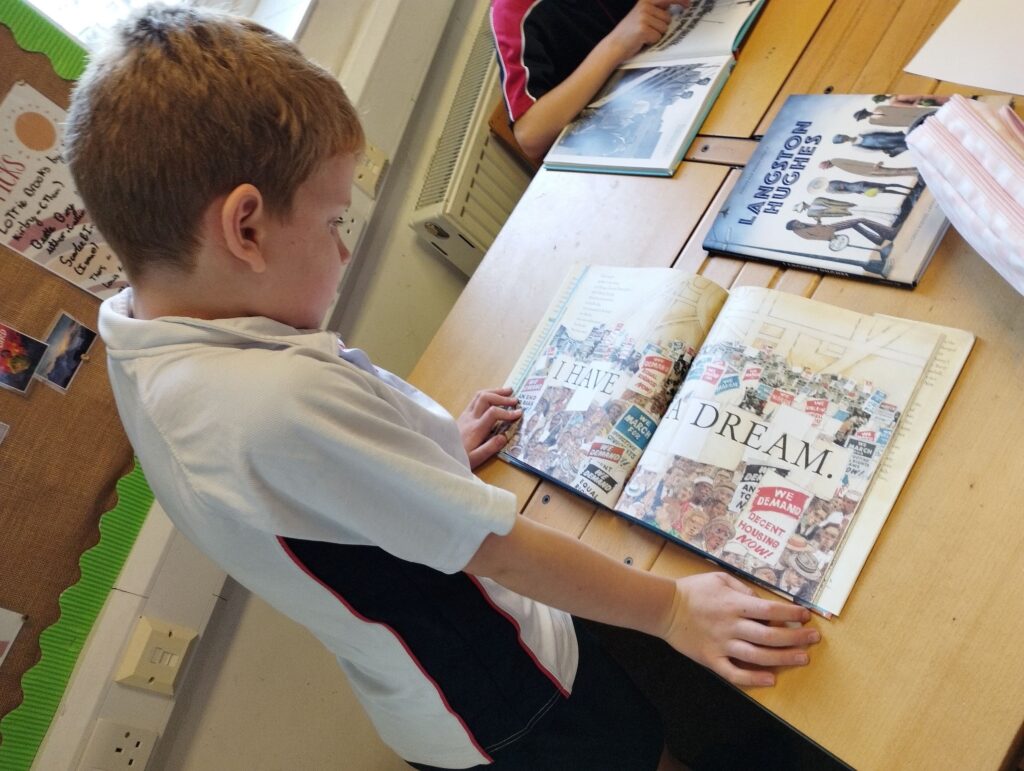
PSHE
Teaching of Personal, Social, Health and Economics education is in line with statutory guidance and seeks to equip children with the knowledge and problem solving skills they need to grow and thrive in their personal and social lives. The purpose is to stay healthy, safe, and prepared for life and work in modern Britain.
